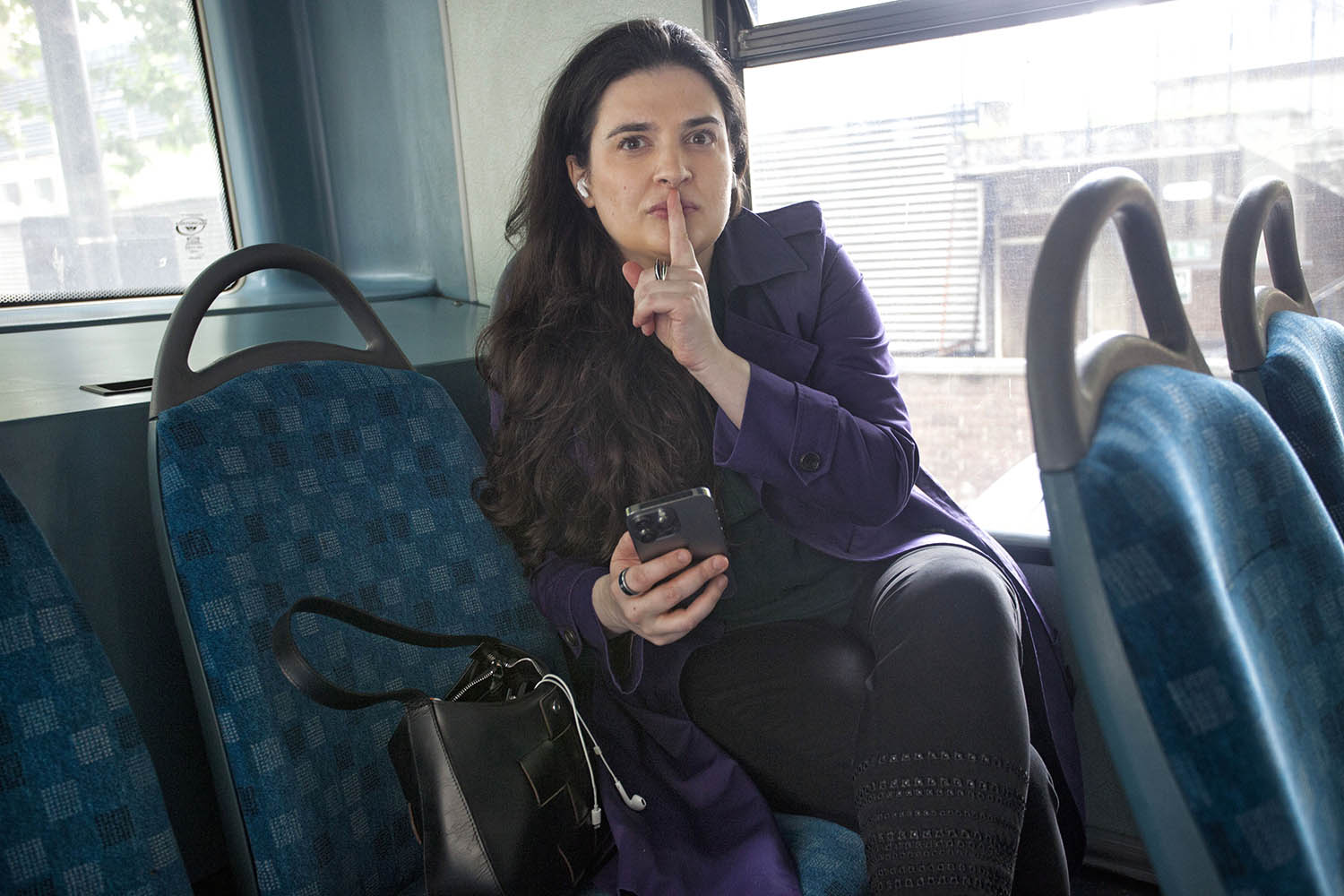The young woman on the train seat behind me returns my gaze and widens her eyes in amazement. She is, as I have learned in excruciating detail throughout the journey from Purley, south London to London Bridge, a trainee nurse – early 20s, active in her Pentecostal church – all dressed up for a big night on the town. Tonight she hopes to cheat on her on-off boyfriend in revenge for him lying about his continued intimacy with the mother of his child.
Thanks to the volume of her call, which is set to speakerphone, with graphic interjections from her friend on the other end, we have heard it all. I gently ask why she is not using headphones for a private call. She is not hostile, but is stunned that I would ask the question. “But nobody I actually know is in this carriage,” she explains. “They can’t hear me.”
Nothing in the past 25 years has altered our public spaces like the auditory pollution of the smartphone. The arrival of the boom box in the US in the late 1970s offered a glimpse of a future of portable music, but those who dared to pump beats in public spaces often found themselves at the centre of a clash of cultures.
In films, heroes were applauded for inflicting violence on them. In a famous scene from the 1986 movie Star Trek IV: The Voyage Home, a time-travelling Mr Spock and Captain Kirk find themselves on a bus in San Francisco, where they are shocked by the audacity of a punk blasting out a track from a fictional band, aptly named the Edge of Etiquette. Spock cements his status as everyone’s favourite alien-human by using his Vulcan nerve-pinch to render the offender unconscious. Onlookers cheer.
Many of us spend our commutes silently wishing we could inflict punishment with the same impunity. The balance of power, however, has changed. Take a bus into London now and your ears will be greeted with more TikTok videos and Zoom calls than any fellow traveller could possibly police – even those of us inclined to confrontation.
For those of us with sensitive hearing, it is hell on Earth; it also correlates to a rise in the diagnoses of misophonia, a controversial disorder used to define extreme emotional reactions to intrusive sound. (Or is it that the human ear is not built for the flattened soundwaves of most recorded sound, which are audibly harsher than the natural voice?)
So The Observer has sent me to spend the day in London’s public spaces, politely approaching the worst offenders. I am here not to provoke but simply ask: why?
The day starts badly. On Holland Park Avenue in west London, I approach a man conducting a loud video call in English and Arabic, holding his device up at a blinding angle as he pops in and out of expensive shops. “May I ask why you’re using speakerphone?”, I say when I catch up with him at a till. “So I don’t have to speak to cunts like you,” he replies.

‘It’s like everyone else is doing it, so I’m doing it to distract myself from them’
‘It’s like everyone else is doing it, so I’m doing it to distract myself from them’
Rob, video designer
Yet when I start to initiate conversations more carefully, people are open to analysing their own behaviour. “You’re right – I would never have done this before Covid,” says Rob, a 30-year-old video designer, taking the No 94 bus while scrolling loudly through TikTok.
“But now, it’s like everyone else is doing it, so I’m doing it to distract myself from them.”
Newsletters
Choose the newsletters you want to receive
View more
For information about how The Observer protects your data, read our Privacy Policy
For Ukrainian-born Aleksandr, resident in Germany, it is all about speed, tech and cultural differences. “I’d never get away with this on a German train carriage,” he admits. “But my friends insist on sending voice notes.” Aleksandr prefers to reply with text, but finds it quicker to speak into his phone and allow ChatGPT’s voice-recognition software to transcribe it.
Why no headphones? “It’s hard enough to keep a phone charged all day – I prioritise that over charging my headphones.”
He is gone before I can discuss the option of wired headphones.Forgotten headphones is a general theme, although some have made active decisions to eschew them. “I can tell you exactly my reasoning,” says a professionally dressed young woman taking a loud video call on her way to Marylebone railway station. “I don’t feel safe in London; people snatch phones, and I’ve found headphones make me less aware of threats.” (She does not explain, though, why she cannot forgo the call altogether).
“I always use speakerphone,” says Ian, whom I meet in a quiet spot in Holland Park. “Put your phone to your head, or even use headphones, and it gives you cancer.”
To his credit, Ian says he would not dream of playing his music in Holland Park’s tranquil Japanese garden, which is my next stop. This used to be my quiet spot in London. Now it is a slew of tourists taking photographs.
This creates a different kind of problem; it blocks the narrow bridge that once offered a gentle walk and is now a full-time Instagram backdrop. But it also brings a constant babble of influencers livestreaming with background music, or tourists broadcasting the experience to loved ones. “Why wouldn’t I want to share this place with my family back home?,” says one, in total amazement.
Across the course of my day, that need to share emerges as the biggest theme. “We can’t use headphones if we’re looking at the same clip,” say the teenagers at the back of the No 2 bus. They are not unlike the affluent man in his 50s I confronted recently in a smart restaurant, who decided to disturb the peace with a series of clips from football matches. “I’m here to spend time with my son,” he spluttered. “When we get together, we look at the football.”
Sharing is caring – but only within your own bubble. Every noise-blasting group I have encountered seems to be deepening their own bonds while condemning bystanders to share matters far beyond their own social concerns. This feels like a clear legacy of Covid, the event that shrank our social worlds into households and bubbles.
If you are planning a revenge infidelity, of course you need to share it with your best friend. But the other people on the carriage? They may as well not exist.
Photographs by Sophia Evans/The Observer & Issarawat Tattong/Getty



